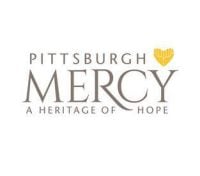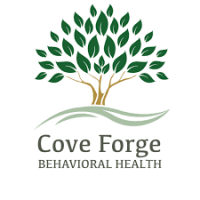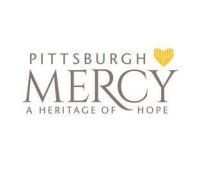Mercy Behavioral Health
Drug Rehab Center in Pittsburgh, Pennsylvania
Mercy Behavioral Health is an addiction treatment facility in Pittsburgh, PA that provides comprehensive programming, including aftercare support, drug rehab, dual-diagnosis, inpatient, intensive outpatient, and outpatient levels of care, as well as holistic therapies, licensed clinicians, and peer support, for people with dual diagnosis, opioid addiction, substance abuse, drug addiction, and mental health issues, and accepts private health insurance.
About This Pennsylvania Facility
Mercy Behavioral Health is an addiction treatment facility located in Pittsburgh, Pennsylvania. Founded in 1831, this longstanding institution offers a range of services to individuals suffering from dual diagnosis, opioid addiction, substance abuse, drug addiction, and mental health issues. With a strong focus on aftercare support and individualized treatment plans, Mercy Behavioral Health aims to address the specific needs and challenges faced by those seeking help for their addictions.
At Mercy Behavioral Health, an array of treatment methods are utilized to aid individuals in their recovery journey. The center offers inpatient, outpatient, and intensive outpatient levels of care, providing flexibility to meet each patient's unique needs. With a specialized focus on dual diagnosis treatment, the facility is equipped to assist individuals facing co-occurring mental health disorders alongside addiction issues. With the range of resources available at Mercy Behavioral Health, patients can receive comprehensive care and personalized support as they work towards recovery.
Genders
Ages
Modality
Additional
Conditions and Issues Treated
Rehab centers in Pennsylvania exist to help individuals bounce back from substance abuse. Drug addiction refers to the use of illegal drugs and improper use of prescription drugs. Substance abuse includes all problems that stem out from using psychoactive substances. Centers like Mercy Behavioral Health are here to help.
Opioids are a set of drugs prescribed for pain relief. Opioid addiction for Pennsylvania residents refers to the compulsive seeking of opioids, even when they are not required medically. Treatment involves medication-assisted therapy in which medicines, counseling, and behavioral therapies are all utilized at Mercy Behavioral Health.
A dual-diagnosis describes two medical issues that are happening at the same time. They may or may not be related. Over 50% of people with an addiction in Pennsylvania have another mental health condition. Screening for both addiction and any untreated mental health issue is essential, and individually managed by Mercy Behavioral Health.
Levels of Care Offered at Mercy Behavioral Health
This center offers a variety of custom treatment tailored to individual recovery. Currently available are Aftercare Support, Drug Rehab, Dual-Diagnosis, Inpatient, Intensive Outpatient, Outpatient, with additional therapies available as listed below.
Inpatient treatment takes place when a patient checks into a rehab facility. Patients at Mercy Behavioral Health receive round the clock care that includes detoxing and therapy. Although outpatient treatments are available, inpatient care is recommended as the first step in rehabilitation. The intensive and comprehensive treatment sets patients on a path for drug free living.
Mercy Behavioral Health offers an Intensive Outpatient Program is for those who need intensive care but prefer to spend the majority of their time in the comfort of their own home. The rehabilitation services differ in length and intensity. They are customized to meet the needs of the patient.
Aftercare support refers to the follow-up care provided after the initial rehab program. The quality of aftercare support plays an important role in preventing relapses and sustains recovery. Aftercare support at Mercy Behavioral Health is personalized according to the needs of the patient in Pennsylvania.
Therapies & Programs
Individual therapy refers to one-on-one psychotherapy between a patient and their Mercy Behavioral Health therapist. Individual therapy seeks to help identify the issues that drive and contribute to a client’s addiction or alcoholism. Another goal of individual counseling is to assist the client to learn how to manage their lives without alcohol or drugs.
Therapy for couples decreases unhealthy behavior in a relationship that can trigger addiction. Either, or both, members of the couple will be improved by this. This treatment administered by Mercy Behavioral Health still targets addiction and can also make a relationship healthier through a variety of methods.
Group therapy occurs in a group setting as opposed to a one on one setting. It benefits patients by providing a feeling of support and letting them know they are not alone. Patients at Mercy Behavioral Health also learn to build trust and understanding and gain perspective through discussions.
After experiencing trauma, it’s crucial to look for a facility that can provide trauma therapy. This approach zeroes in on the traumatic incidents that a patient has encountered in the past, recent or not. It’s been widely known that trauma can make an individual resort to alcohol or other substances to mask their troubles and pain. Trauma can originate from domestic violence, sexual abuse, an early encounter with death, sexual assault, and many more. The goal of trauma therapy at Mercy Behavioral Health in Pittsburgh, PA is to help the patient see beyond the trauma and move forward. Mental health professionals will facilitate the patient’s journey and see to it that he or she is no longer a victim of his or her traumatic experiences and has wholly regained his or her personal power.
DBT, also known as dialectical behavior therapy, is a form of cognitive behavioral therapy (CBT) that helps people understand how their thoughts, behaviors, and feelings all connect. This can give them more control over their actions, effectively stopping self-harm ideations and attempts in some patients. It can also help put people in control over some mental struggles, like borderline personality disorder.
Most individuals suffering from addiction have low self-awareness, so they end up making poor decisions. Cognitive Behavioral Therapy (CBT) is suitable for patients recovering from an addiction of any kind. Through it, patients become more aligned with their thoughts, emotions, and behaviors, giving them a better opportunity to respond appropriately to temptations and negative feelings.
This therapy modality at Mercy Behavioral Health in Pittsburgh, PA strengthens a person’s ability to stay on top of their emotional state and learn new stress management techniques so they won’t give in to the temptations easily. Moreover, CBT helps people communicate and express their emotions well, which can be vital in relapse management. CBT is also suitable for managing co-occurring disorders like depression and bipolar illness.
Rational Emotive Behavior Therapy sees a person suffering from substance addiction to have illogical reasoning, counterproductive actions, and does not see things clearly. REBT at Mercy Behavioral Health in Pittsburgh, PA deals with cognition, images, and behavior extensively to rectify the client’s bad habits. The process calls for practice, reiteration, and bolstering the new way of thinking being introduced to the patient.
A 12-Step Program is a common method that is used to treat addiction. This format is used for both drug and alcohol treatment. It is extremely popular and successful for large numbers of people. It is a relatively simple set of steps that are done continuously in order to move through life with awareness, accountability and honesty. 12-Step programs are available in most every city in the Unites States. They are available in person, electronically and virtually through phone or web-based meetings.
Contingency management (CM) is a system that rewards patients for positive behavior. Patients may get a gift for a clean drug test. They may also get punished for negative behavior. The therapy inspires patients to engage in healthy behaviors and limit unhealthy behavior. It is effective in treating addiction and other issues.
Payment Options Accepted
For specific insurance or payment methods please contact us.
Is your insurance accepted?
Ask an expert, call (888) 674-0062
Additional Details
Specifics, location, and helpful extra information.
Pittsburgh, Pennsylvania 15203 Phone Number(412) 488-4040 Meta DetailsUpdated November 25, 2023
Staff Verified
Patient Reviews
There are no reviews yet. Be the first one to write one.
Pittsburgh, Pennsylvania Addiction Information
Pennsylvania ranks 14th in the nation for drug-related deaths. More than 10% of all deaths in Pennsylvania have been related to drugs and alcohol. 30% of Pennsylvania youth reportedly drink alcohol monthly, with more than 20,000 teenagers having an alcohol problem. The rate of opioid misuse in Pennsylvania is double the national average.
Pittsburgh, Pennsylvania, has been hit hard by the opioid epidemic. About 24,000 people in Pittsburgh struggle with drug addiction. In the city, there were 9,813 overdose deaths in 2016. Alcohol is a factor in more than 38% of all traffic fatalities in Pittsburgh. There are plenty of drug treatment centers in the area to help you get your life back on track.
Treatment in Nearby Cities
- Cranberry Twp, PA (18.7 mi.)
- Towanda, PA (206.7 mi.)
- Marienville, PA (84.9 mi.)
- Wrightsville, PA (184.9 mi.)
- Darby, PA (252.5 mi.)
Centers near Mercy Behavioral Health
The facility name, logo and brand are the property and registered trademarks of Mercy Behavioral Health, and are being used for identification and informational purposes only. Use of these names, logos and brands shall not imply endorsement. RehabNow.org is not affiliated with or sponsored by Mercy Behavioral Health.








